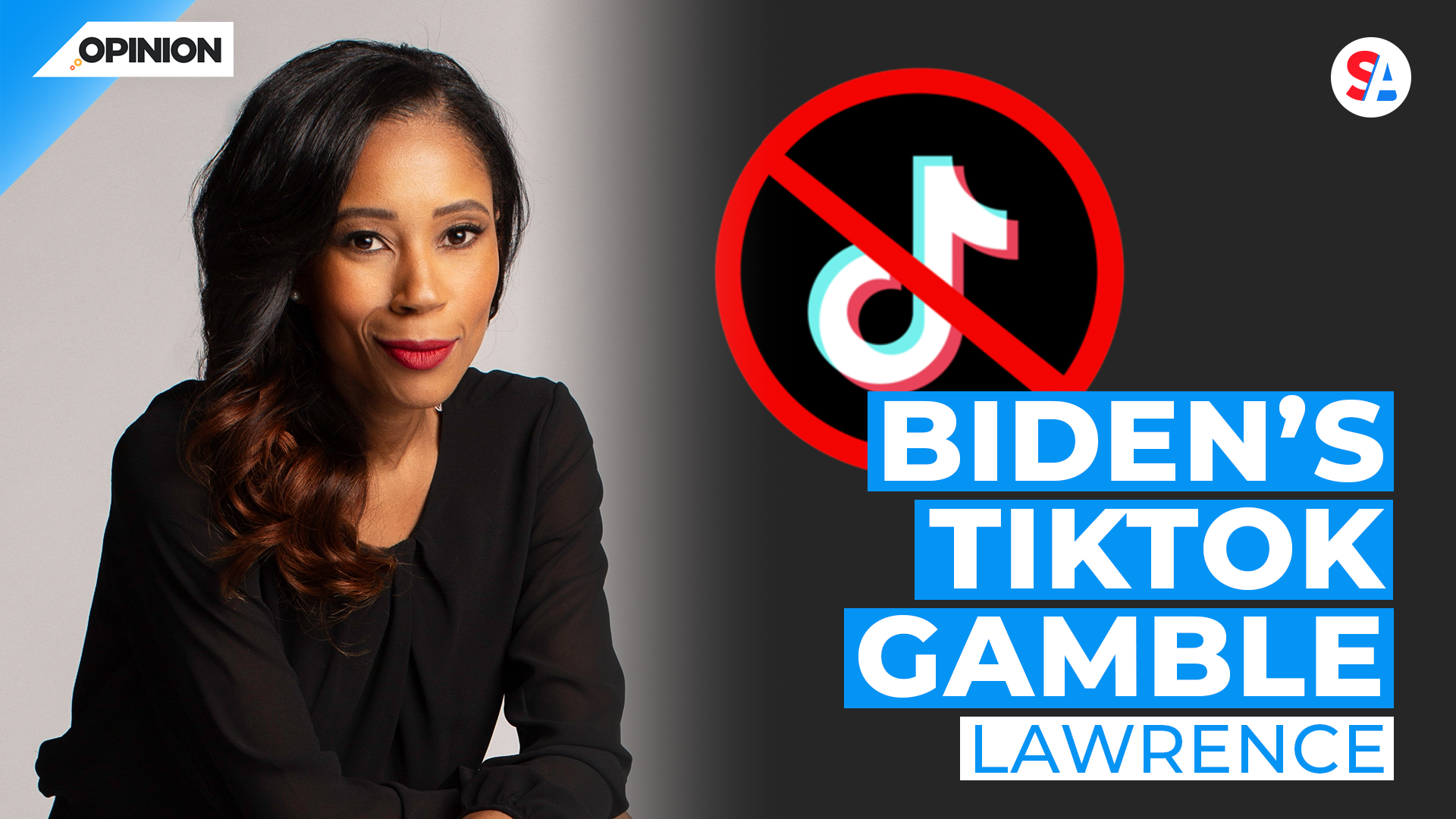
Commentary
-
Our commentary partners will help you reach your own conclusions on complex topics.
Just like the Trump administration, Team Biden has a beef with TikTok, all over perceived potential national security threats.
So, of course, that meant that the US had to deliver an ultimatum to the Chinese-owned social media company: either sell your stakes or be banned.
So how does this forcing a sale of a social media platform align with this whole what, freedom and free markets narrative that we’ve been pushing for the past few hundred years? I would say it doesn’t.
But what it does seem to align with, in terms of threatening TikTok, is Biden appearing tough on China. That’s what this is all about — the optics. But what Biden may not see, in this moment, is how banning TikTok could impact new voters in 2024.
Think about it. TikTok attracts young bucks. In the United States there are more than 100 million TikTok users, and the single largest group of those users are aged 10 to 19. They represent one-third of U.S. TikTok users. This app is where young people will go to learn and create, to share and stay informed. It’s an outlet for youth, as they deal with mass shootings, school shootings, book bannings, abortion rights and so on. How do you think these young people will respond when Biden, an octogenarian, tries to take away their online outlet?
Not only does that raise First Amendment concerns, but forcing TikTok to sell would seem to violate restrictions on using presidential power. And also, doing so just because you fear that China could learn more information about these young users, sounds silly. It’s laughable, kind of, when you say it out loud. These young TikTok users are on that app sharing details and information about themselves because they want more people to learn about them. And they’re used to having their personal information in the cyber streets. This upcoming generation was born into a world where data breaches and leaks are everything they’ve ever known. Many also know that the U.S. government has data grabs all the time. The Ninth Circuit Court of Appeals just ruled earlier this month that TikTok didn’t have a right to disclose the user data that the federal government demanded TikTok turnover.
So it’s not likely a big deal to TikTok users that the Chinese government could get their data. It’s also not a good look for Biden to be at the helm when TikTok is possibly taken down, given the GOP is messaging that the Left is trying to silence people. All said, Biden may think he’s scoring points, but he should be aware as he heads into the next election while trying to shake off the whole relatability concern that comes with his age. The man is north of 80 and he still seems to think cannabis is a gateway drug.
Biden needs to attract and to connect with younger voters who are poised to upend American politics as demographics shift in the coming years. If going into the 2024 presidential election, young voters remember Biden largely because he’s the one that took away TikTok instead of high-powered assault rifles, it could play a role in remembering him as a one-term president.
-
Trump-Vance ticket will implement nationwide abortion ban
Donald Trump recently accepted the Republican nomination for president and named Sen. J.D. Vance, R-Ohio, as his running mate. Vance has previously advocated for strict anti-abortion laws, in sharp contrast to Kamala Harris, the leading Democratic candidate, who went on a nationwide tour to mobilize pro-choice voters. Watch the above video as Straight Arrow News…
-
End of Chevron is an open invite for corporate corruption
On June 28, the U.S. Supreme Court overturned 40 years of “Chevron deference” in a landmark ruling that experts say will cause a “legal earthquake.” The 6-3 conservative opinion upends a long tradition of relying on neutral expertise to interpret and execute laws and regulations. Broadly speaking, the ruling empowers judges and corporations at the…
-
American democracy cannot survive if Trump wins
Public alarm over the chances of democracy surviving in America has reached a new high-water mark in the wake of the Supreme Court’s July 1 ruling in Trump v. United States, where the court expanded presidential powers for all current and future U.S. presidents. Among other things, the court may have granted U.S. presidents the…
-
Talk to your kids about sextortion
The FBI is warning Americans of a growing threat called sextortion, where online predators pose as young, single individuals to lure their victims, primarily single teenage boys, into a blackmail trap. After soliciting sexual photos or videos of the victim, the predator threatens to release the images or videos unless the victim sends money and/or…
-
Louisiana’s Ten Commandments law proves Gov. Landry is corrupt
On June 20, GOP Gov. Jeff Landry of Louisiana signed into law a new bill that requires all public Louisiana school and university classrooms to display a poster-sized printout of the Bible’s Ten Commandments. The law violates existing legal precedents regarding the First Amendment and is expected to be challenged in the Supreme Court, although…
Latest Opinions
-
 U.S. Department of Defense
U.S. Department of Defense
Congress still trying to figure out how to reduce wasteful military spending
-
 DVIDS
DVIDS
US Navy, Air Force making waves with new weapons at RIMPAC
-
 Getty Images
Getty Images
Israeli PM Netanyahu meets with Trump at Mar-a-Lago
-
 Getty Images
Getty Images
Growing US nuclear power resurgence reaches the nation’s heartland
-
 Getty Images
Getty Images
Beer from the sun, other solar thermal projects get government funding
Popular Opinions
-
In addition to the facts, we believe it’s vital to hear perspectives from all sides of the political spectrum.


